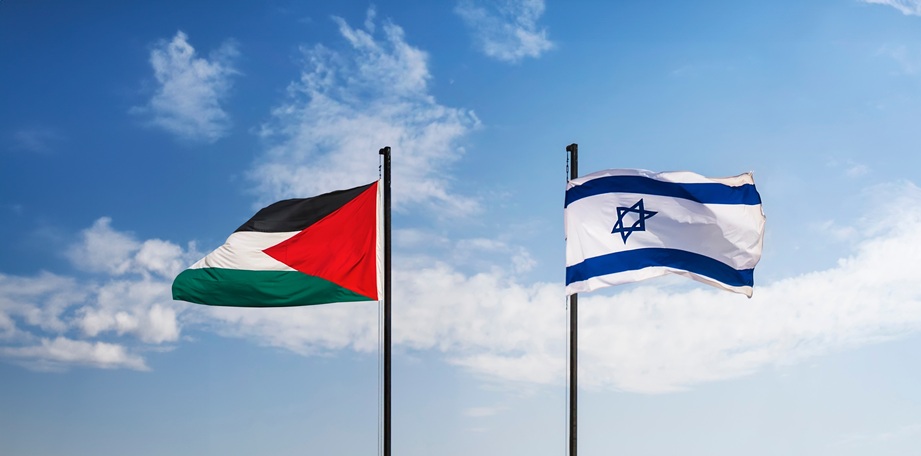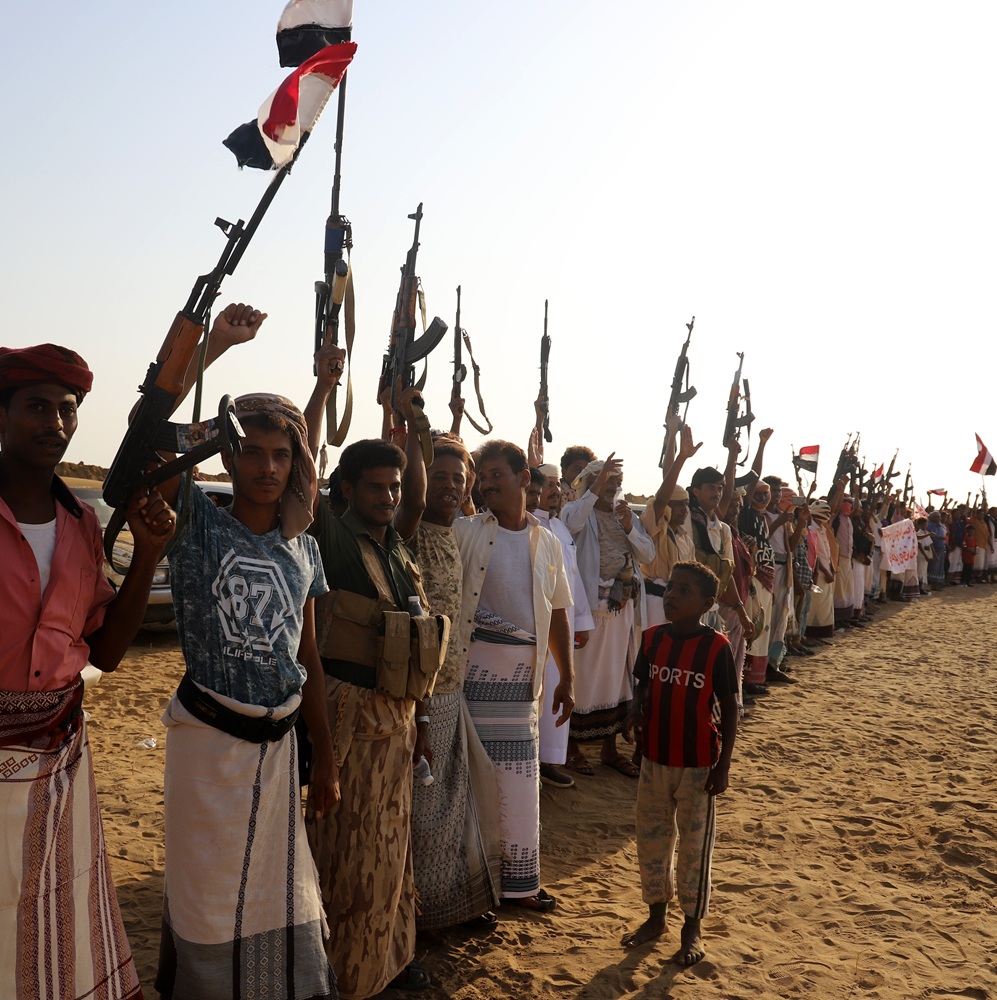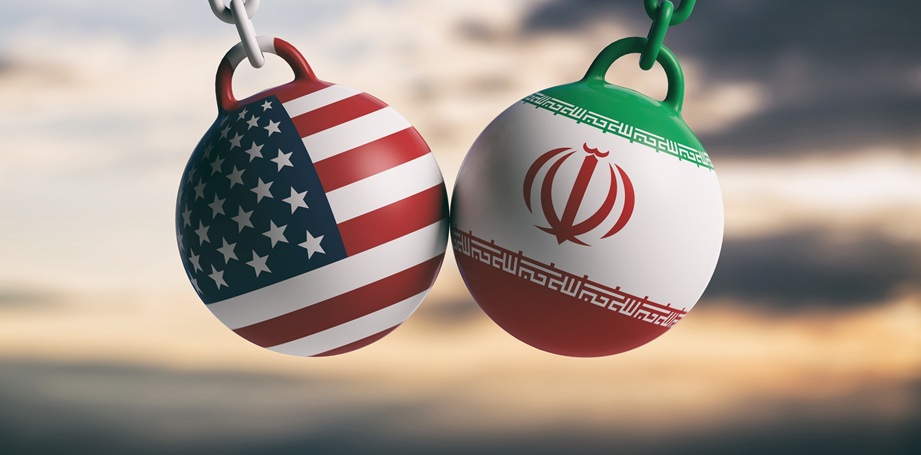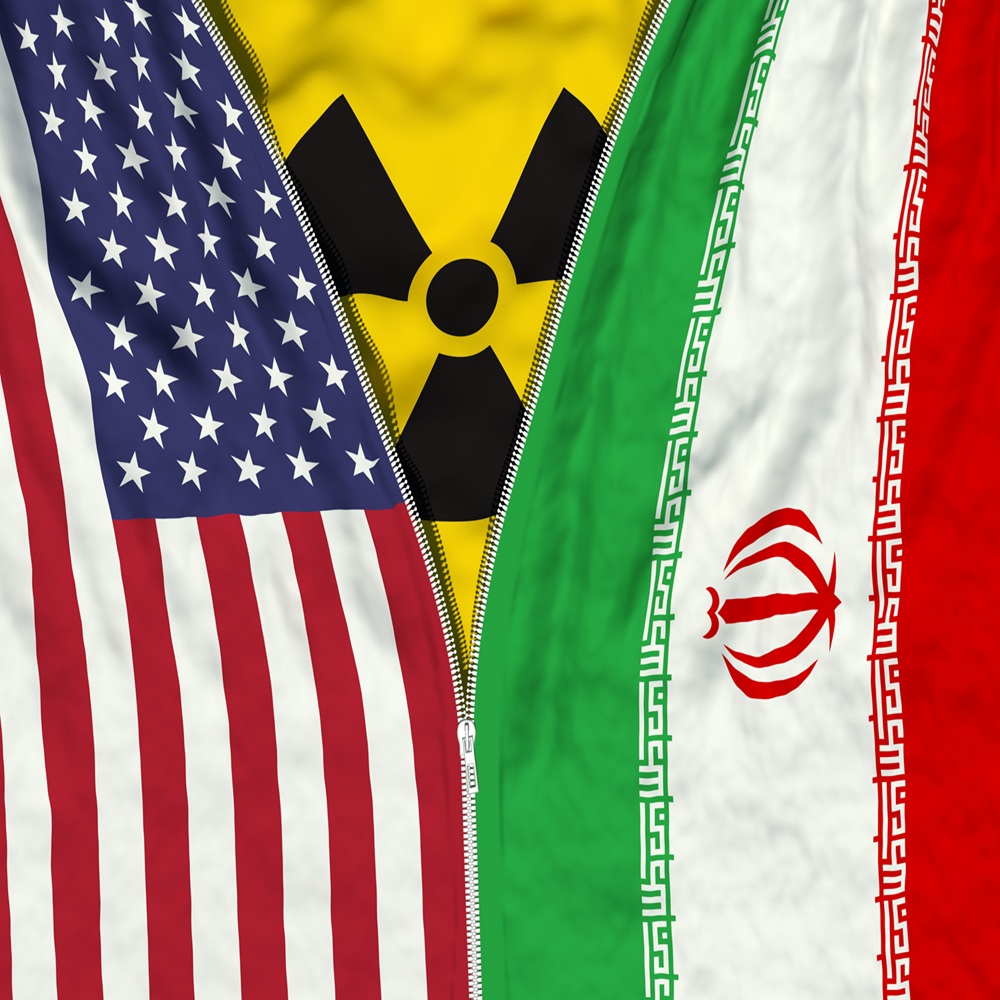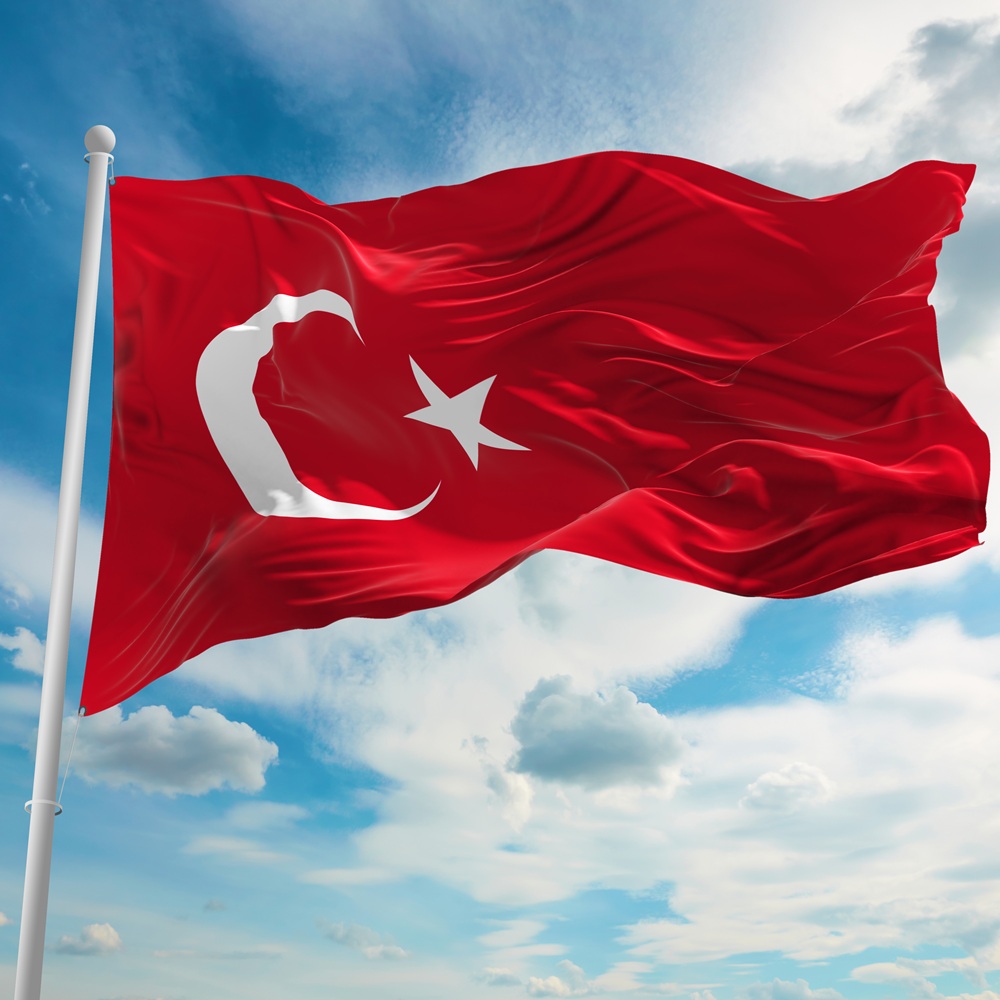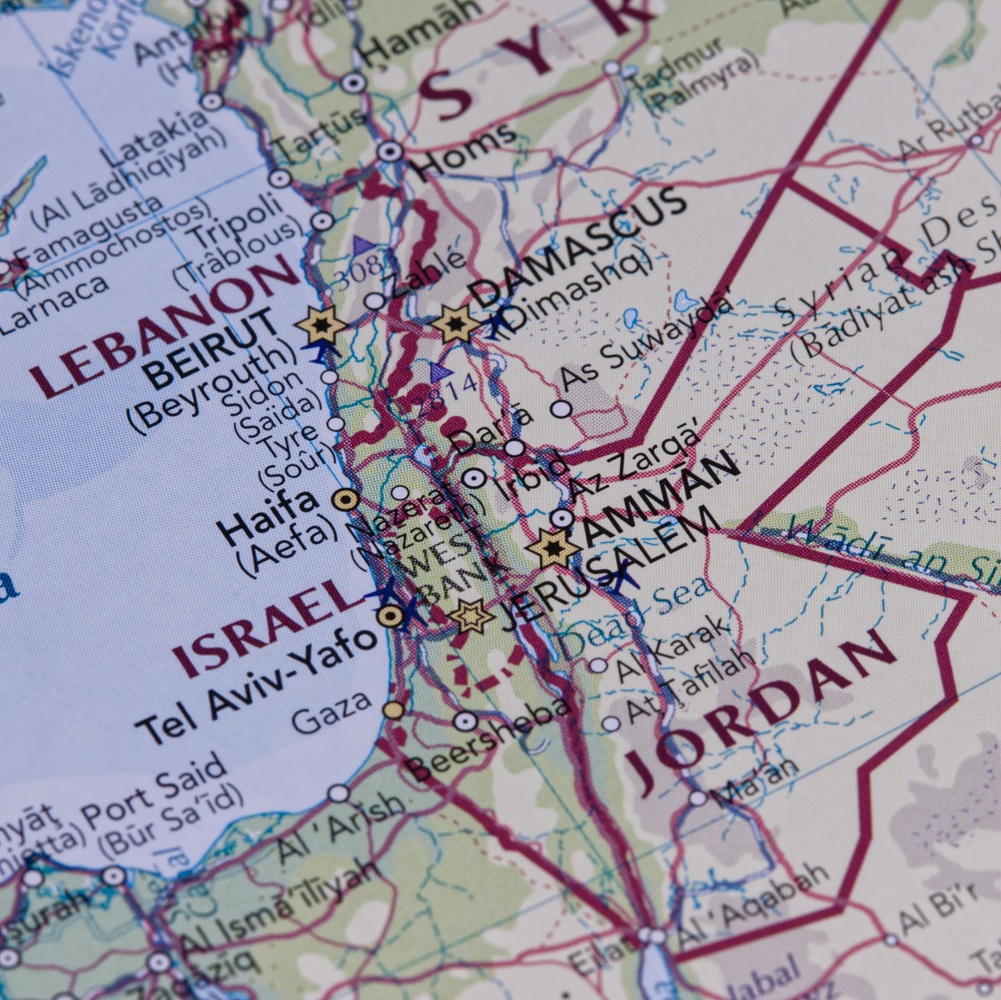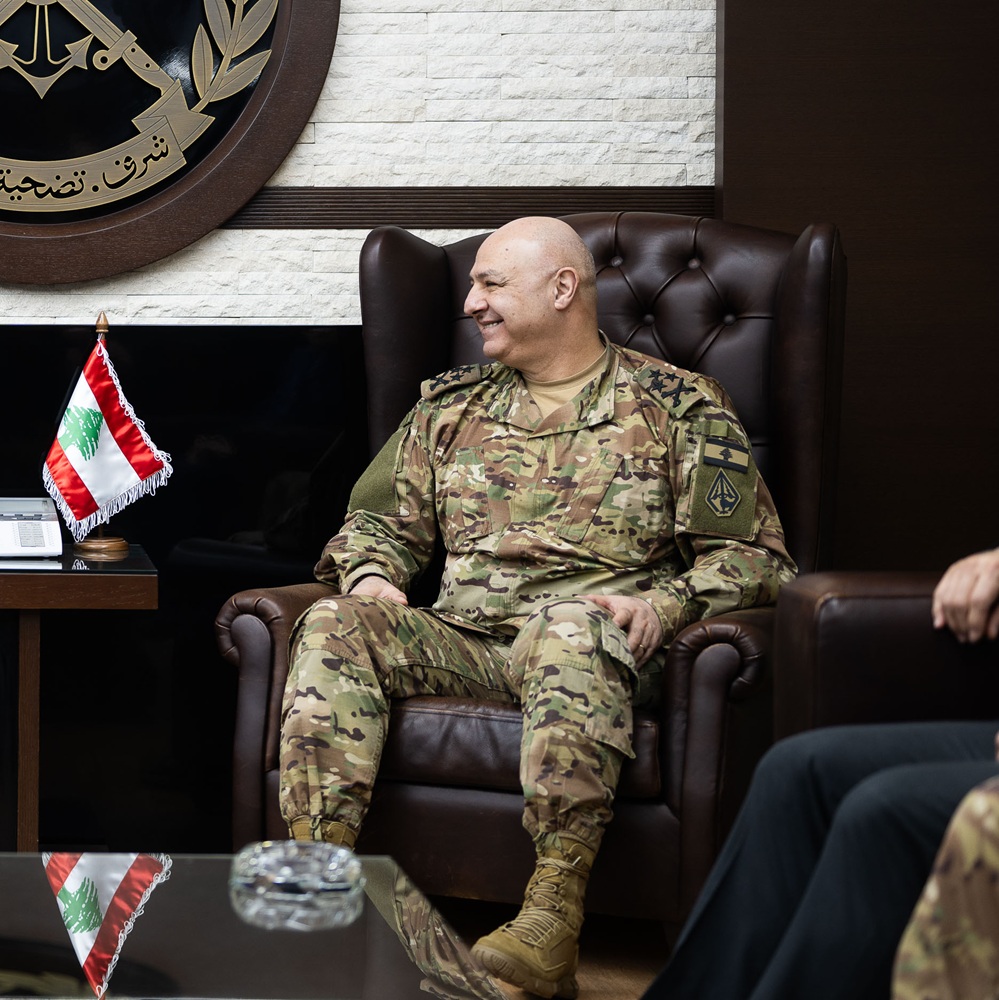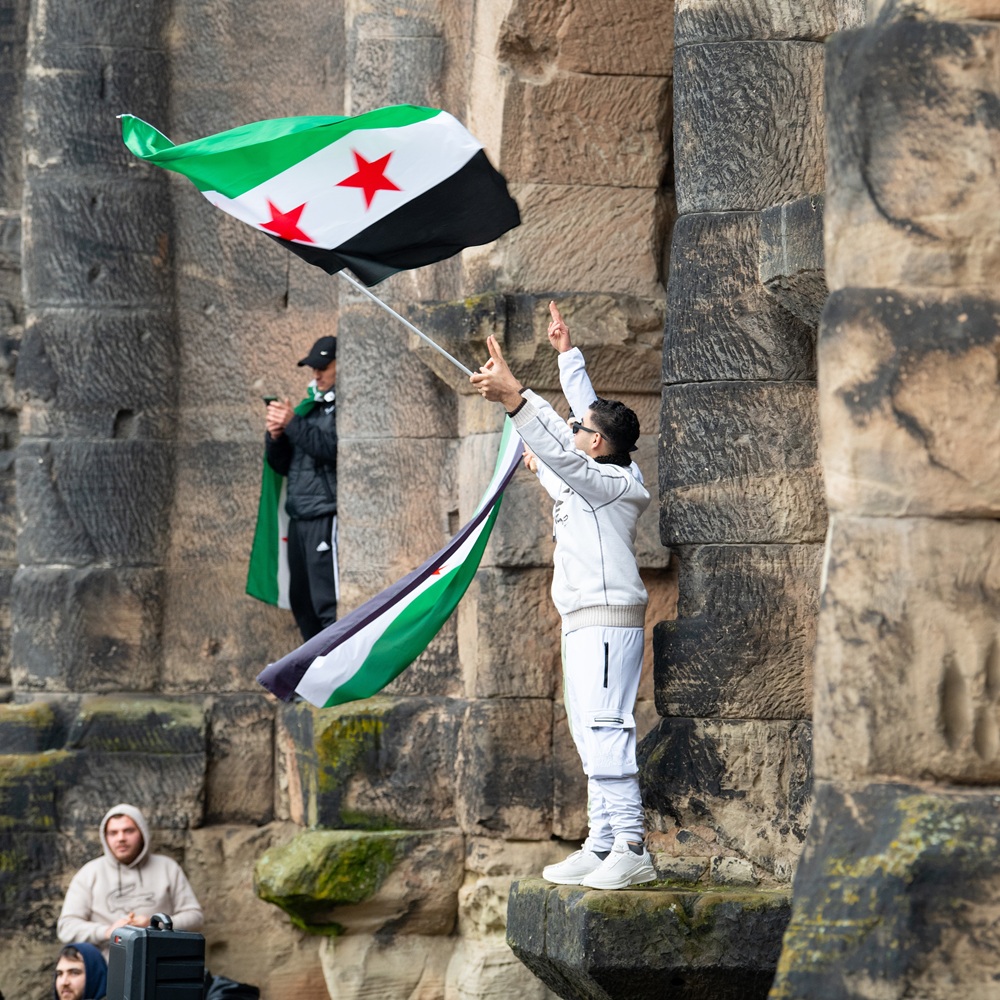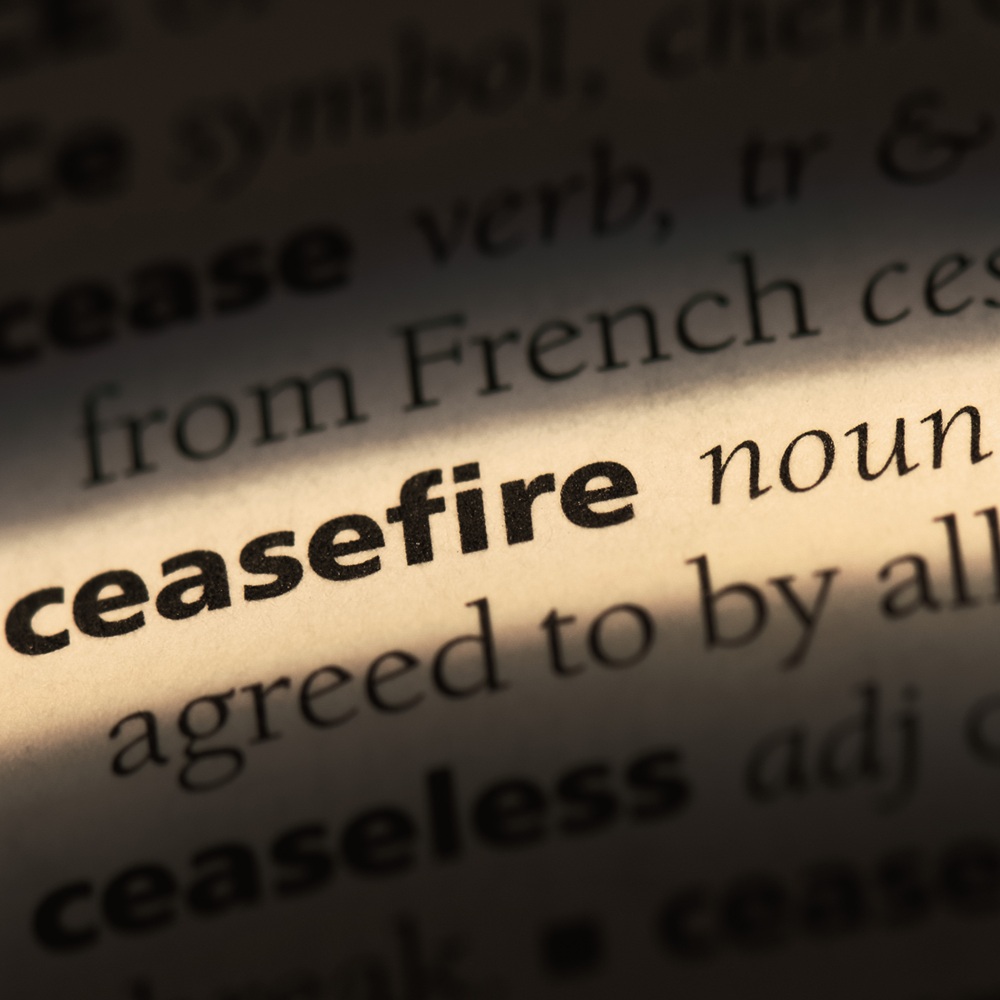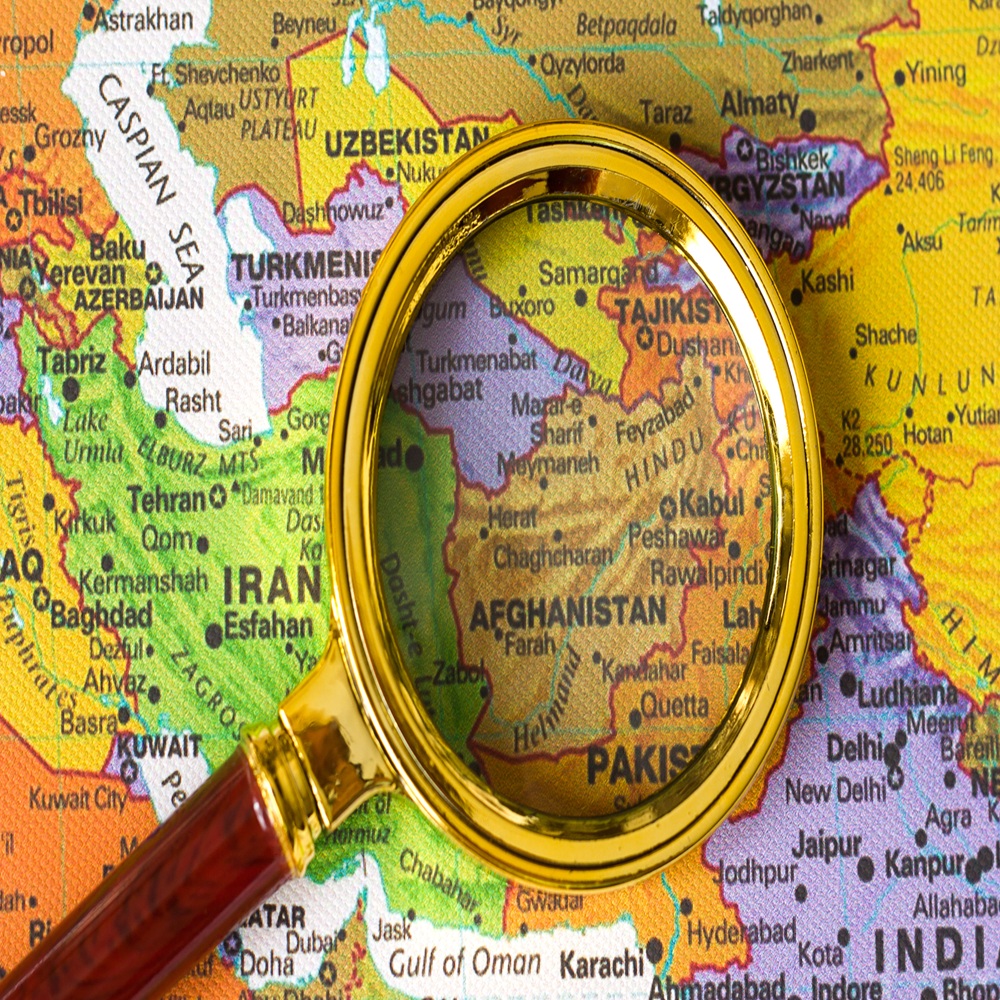Academic Paper: Contradictions in the Pyramidal Segmentary Theory of Israel’s Regional Policy
by Prof. Dr. Walid ‘Abd al-Hay
한국어로 읽기
Leer en español
In Deutsch lesen
Gap
اقرأ بالعربية
Lire en français
Читать на русском
Introduction Political sociologists concur that no society exhibits complete homogeneity in its structure; however, the degree of internal variation differs significantly across societies. Subcultures—defined by linguistic, religious, tribal, sectarian, racial or national distinctions—can serve as points of leverage in managing interstate conflicts, with states potentially exploiting these divisions either positively or negatively. This fragmentation leads to a spectrum of loyalties, ranging from the immediate family unit to broader affiliations such as clan, tribe, nationality, or religion, encapsulating the essence of the Pyramidal Segmentary theory.[2] This issue arises when individuals or groups experience a dispute between loyalty to a higher affiliation and loyalty to a lower one. Such disputes provide an entry point for political exploitation by other states, especially since the theory suggests that, in cases of dispute, lower loyalties often take precedence over higher ones. The intensity of these disputes can escalate when they develop into full-blown conflicts. This dynamic is further elucidated by Elizabeth Colson’s theory of Conflicting Loyalties. Colson argues that there is a fundamental disagreement regarding the priorities of loyalty—whether lower loyalty or higher loyalty should take precedence. If higher loyalty prevails, subcultures will face significant pressure to conform to the demands of the higher loyalty. However, if lower loyalty prevails, societal unity is at risk of geographic and political fragmentation.[3] These dynamics are central to strategic planning by international actors, particularly in their engagement with minority issues and their potential utilization. This study aims to elucidate the potential resurgence of Israel’s historical projects in this domain, identifying indicators of such revival, and examining mechanisms to counteract these developments, as well as their implications for Palestinian rights. First: Arab Pyramidal Segmentary A comparison between the Arab region and other geopolitical areas reveals significant differences in the level and dimensions of Pyramidal Segmentary, as shown in the following table:[4] The table indicates that: 1. The Arab world exhibits a moderate level of ethnic diversity compared to other global regions. However, since 2014, it has experienced the highest levels of political instability.[6] This disparity suggests that ethnic diversity alone does not account for the region’s instability. Therefore, it is essential to examine additional factors contributing to this instability, while still acknowledging the role of minority groups. 2. If we examine the relationship between the level of democracy and ethnic diversity in Arab countries, we observe that the extent of ethnic diversity does not align with the degree of democratic governance. While the Arab region ranks lowest in terms of democracy, its ethnic diversity is not as pronounced as that of Africa. However, despite this, democracy in Africa surpasses that in the Arab region.[7] The above indicates that external powers recognize that instability and the absence of democracy provide an entry point to exploit the grievances of minorities in the Arab world, especially when ethnic diversity is combined with variables governing minority separatism. In a previous study, we found that the geographical variable is the most important factor in promoting the separatist tendency of any minority. This variable is represented in three dimensions:[8] 1. Minorities situated on the periphery of a state, such as the tribes of South Sudan and the Kurds in Iraq and Syria, often find it easier to engage with neighboring regions and the international community. This peripheral location facilitates the arrival of international aid and foreign intervention. In contrast, minorities located in the heartland, like the Amazigh in the Maghreb countries, may experience different dynamics due to their central position within the state. 2. The concentration of a minority population in a specific geographical area, such as the Kurds in Syria or Iraq, can reinforce their sub-identity. Conversely, minorities like Christians in Egypt or Shiites in Saudi Arabia, who are dispersed across various regions, may experience a different dynamic. In these cases, the lack of a concentrated territory can lead to a more fragmented sense of identity. 3. The presence of significant economic resources in regions predominantly inhabited by minorities can lead to economic benefits being concentrated among a smaller segment of the population, rather than the majority. This concentration can foster separatist sentiments, as seen with oil in Iraqi Kurdistan and northern Syria, and petroleum in South Sudan prior to its secession. Second: The Historical Record of Israeli Infiltration into the Structure of Minorities in Arab Countries Israeli studies and reports document facts about Israel’s cooperation with Arab minorities, while official Israeli literature has promoted political projects aimed at integrating minorities into its broader penetration strategies. This is evident in the following examples: 1. An Israeli study indicates that, before the Camp David period, relations with Arab minorities and certain Arab countries were overseen by Israeli security agencies rather than the Ministry of Foreign Affairs due to the fundamental hostility between Israel and the Arabs. Furthermore, some interactions with minorities required confidentiality, as was the case with the Kurds, the Maronites and certain groups in the Maghreb.[9] 2. A dissertation traces the development of contacts between the Jewish Agency and minorities, particularly the Kurds, in the early 1930s. It examines Israel’s efforts to instill the concept of “Greater Kurdistan” among Kurdish minorities, with an initial focus on Iraq. However, these attempts faced opposition from the countries with Kurdish minorities, namely Iraq, Iran, Turkey, and Syria. The study then examines how the extent of Zionist penetration into Kurdish society was linked to the political regime’s stance toward Israel in the Middle Eastern country. Accordingly, Zionist plans emphasized that Kurds and Jews share a common enemy—the Arabs—framing cooperation between the two as necessary in confronting this shared adversary.[10] 3. At a later stage, the issue of the relationship with minorities in the Arab world evolved into declared projects, occupying the focus of research circles in Israel. This was evident in the work of Oded Yinon, who was responsible for the long-term planning division in the Israeli Ministry of Foreign Affairs. His central idea was to divide Arab countries based on sub-identity lines, even very narrow ones.[11] 4. The effort to perpetuate the sub-identities of minorities—sectarian, religious, ethnic, and others—by disseminating extensive literature on each group. The ultimate goal is to position the Jewish identity in the Middle East as an integral and consistent part of the region’s broader ethnic landscape.[12] In his book, Kamal Jumblatt discusses Israel’s relationship with certain sub-identities in Lebanon, including its provision of weapons, and highlights studies published by various institutions to reinforce subcultural identities. He references correspondence between former Israeli Prime Minister Moshe Sharett and his ambassador in Rome, which outlines a strategy to fragment the region—Lebanon in particular—into sectarian states, thereby establishing Israel as the dominant power while aligning its political geography with the social composition of neighboring countries.[13] 5. In his October 2024 appointment speech, Israel’s current foreign minister, Gideon Sa‘ar, emphasized the need to re-establish relations with the Kurds, whom he viewed as being “victims of repression and hostility on the part of Iran and Turkey.” He highlighted that “they enjoy autonomy…in Syria it is de facto, and in Iraq it is also de jure, in the Iraqi constitution.” Sa‘ar also advocated for strengthening ties with the Druze in both Syria and Lebanon, presenting this strategy as a counterbalance to what he described as Iran’s use of minorities to further its regional policies.[14] He believes that “an alliance with the moderate Sunni Arab countries will ensure Israel’s security against the Iranian axis,” effectively aligning along sectarian lines.[15] He has advocated for the division of Syria into several states: a Sunni state in the center, a Druze one in the south, an Alawite state along the coast, and a Kurdish in the north.[16] Third: Utilizing the Variables Governing Israel’s Relationship with Minorities in the Arab World Israeli policy towards sub-identities in the Arab world is characterized by clear duplicity. On one hand, it aims to dismantle Palestinian refugee camps (RCs) in the Arab diaspora, particularly in neighboring Arab countries, as these RCs have been a key factor in strengthening Palestinian national identity, which Israel views negatively. Simultaneously, it seeks to assimilate Palestinian refugees into the societies of the diaspora. In October 2024, Israel took steps to disrupt the operations of the United Nations Relief and Works Agency for Palestine Refugees in the Near East (UNRWA) in RCs in the occupied territories, intending to push these RCs toward social disintegration due to economic hardship. The Knesset passed two laws that ban all UNRWA activities and services in Israel, sever all ties between government employees and UNRWA and strips its staff of their legal immunities.[17] This position has been supported by the US since the first Trump presidency. A document titled Concept Paper, published and prepared by Israeli security agencies, outlines plans to integrate Palestinians into both Arab and Western societies.[18] This aligns with President Trump’s February 2025 proposal to relocate Gazans and resettle them in non-Palestinian communities.[19] On the other hand, Israel actively works to revive sub-identities within Arab society to encourage separatist movements and further geopolitical fragmentation. It is among the strongest supporters of separatist tendencies, as seen in its growing ties with South Sudan following its secession, its relationships with Kurdish groups in Iraq and Syria, and its engagement with certain Christian factions in Lebanon. This highlights the political exploitation of sub-identities to serve Israeli interests. This means that the Israeli strategy relies on contradictory approaches. On one hand, it aims to assimilate and integrate Palestinians into diaspora societies, while on the other, it seeks to revive the historical identities of subcultures in Arab countries to dismantle these nations. Furthermore, it strives to revive Jewish sub-identities in societies worldwide, encouraging disconnection from their original communities and migration to Israel based solely on religious identity. This is further evidenced by Netanyahu’s calls for Israel to be a “Jewish state.”[20] Fourth: Israeli Infiltration Mechanisms within Sub-Identities Israel’s strategy of infiltrating sub-identities within the Arab world is founded on several key principles: 1. Awareness of the Phenomenon of Arab Minorities: Scientific research on ethnicity, sectarianism, and other sub-identities is central to a broad network of research centers. One key institution in this field is the Shiloah Institute, which was founded in 1959 and was named after Reuven Shiloah, the first director of the Mossad and a specialist in Kurdish affairs. The institute was to be linked to the Hebrew University but was duly established to Tel Aviv University in 1965, where it became known as the Shiloah Institute for Middle Eastern and African Studies. It includes departments focused on central Middle East regions, each headed by an expert assigned to a specific region.[21] Notably, current Israeli Foreign Minister Gideon Sa‘ar was among those involved in this academic work. 2. Direct Communication with the Elites and Party Leaders of Some Minorities: A review of studies on this issue reveals that Israel has historically exploited the sensitivities between sub-identities to engage with their leaders, amplifying their fears and offering support to confront the “tyranny of the Arab majority.” Initially, covert and semi-public channels were the primary strategy for Israel. However, as the base of normalization expanded with several key Arab countries, these methods became less covert, with a focus on engaging with sub-identity elites in the countries neighboring Israel.[22] However, this does not mean Israel overlooked minority elites in other countries such as Sudan or Morocco. Many Israeli studies highlight rounds of secret talks with Sudanese leaders during the intense periods of Arab nationalist movements, which lasted from 1954 to 2019. These efforts ultimately paved the way for full normalization between the two parties, with the secession of South Sudan being one of the significant outcomes of Israel’s involvement in this regard.[23] 3. Exploiting Minority Grievances and Authoritarianism on Sub-Identities and Income Misdistribution: The Israeli focus is primarily on minorities where the geographical determinant encompasses three key dimensions: peripheral location, significant economic resources, and demographic concentration. This focus is most evident in relations with the Kurds and South Sudan, though the political exploitation of other minorities remains significant as well. The gaps in democracy and the unequal income distribution across groups or regions within Arab societies provide an easy loophole for exploitation. The Arab region, being the least democratic globally and one of the most unequal in terms of wealth distribution (according to the Gini Index), faces a situation that fosters political instability and promotes separatist tendencies. 4. Israel seeks to dismantle the social fabric of historic Palestine through the Pyramidal Segmentary theory, dividing Palestinian society into three groups: the Arabs of 1948, the inhabitants of what it calls “Judea and Samaria,” and the residents of Gaza Strip (GS). It then further fractures Palestinian identity within each group, classifying the Arabs of 1948 into Christians, Muslims, Druze and Bedouins (Negev).[24] In the West Bank (WB) and GS, it promotes local government administrations based on tribal and clan affiliations, fostering lower loyalties at the expense of the higher loyalty.[25] Furthermore, it has announced a Shin Bet plan to divide GS into small local districts, assigning their administration to tribal or clan leaders based on the size of each tribe or clan.[26] Despite tribal and clan leaders rejecting this Israeli concept, research in this direction continues intensively. Notably, discussions on this matter are not isolated from past precedents, such as Village Leagues in WB. In fact, research on this topic dates back more than a decade and a half before Operation al-Aqsa Flood.[27] This demonstrates that Israeli policy applies the Pyramidal Segmentary theory to serve political objectives rather than adhering to international norms and conventions. The table below highlights this contrast: The table above reveals the following: 1. Israel encourages Jews abroad to maintain their sub-identity in anticipation of future immigration to Israel, while simultaneously weakening their broader national identity in favor of religious or ethnic affiliation. In contrast, it pushes the Palestinian diaspora countries toward policies of integration, assimilation and naturalization. 2. In Israel, the Jewish community is focused on promoting common values that define Jewish identity, striving to create unity by employing the Melting Pot approach to eliminate sub-identities (such as Ashkenazi/ Sephardic, white/ black, Russian, African, Arab, and others). At the same time, efforts are being made to revive sub-identities among Palestinians in WB, 1948 Palestinians, and those in GS, through distinctions such as tribe, clan, sect, religion, nationality (Arabs/ Druze), or place of residence (urban/ Bedouin/ peasants). 3. Efforts to strengthen the collective identity of Israeli society, rooted in the Jewish religion, are reflected in the growing influence of Jewish religious forces and their increasing political weight in decision-making. Meanwhile, there is a push to assign local authorities and administrations in Palestinian areas based on social divisions, such as village leagues, clans and tribes, etc. 4. Weakening the geographical determinant in its three dimensions, as discussed previously, aims to push the Palestinian individual to emigrate. Fifth: Conclusions and Recommendations Based on the above, any revival of sub-identities within Palestinian society contributes directly to Israel’s project of fragmenting the Palestinian social fabric, which underpins all forms of resistance. Whether the fragmentation occurs on regional, ethnic, sectarian, religious, tribal, or clan lines, it significantly serves Israel’s political strategy, which calls for: 1. Intensifying scientific studies and the content of Palestinian political discourse should focus on fostering general loyalty to Palestinian identity, rather than special or lower loyalty (such as organizational, tribal, regional, or religious), as outlined in the Pyramidal Segmentary theory. This responsibility falls on universities, research centers, Palestinian organizations, and civil society bodies. 2. Palestinian organizations should consider how to adapt Israeli political practices to target Israeli sub-identities. In a previous study, we highlighted the significant diversity of Israeli sub-identities, which could be leveraged to destabilize the Israeli social structure.[28] 3. There is a need to strengthen and institutionalize communication between Palestinian organizations and Palestinians in the Diaspora, encouraging the establishment of civil society organizations that aim to preserve Palestinian identity through educational tools and various social symbols. This approach mirrors the method employed by Israel with Jewish communities worldwide. 4. Supporting political trends in the Middle East, particularly those that eliminate binary narratives of sub-identities and counter trends that deepen fragmentation. The uniqueness of the Palestinian situation necessitates a stronger focus on the literature of national identity within Palestinian society, with loyalty to it serving as the foundation. This applies not only to Palestinians in historic Palestine but also to those in refugee camps in neighboring countries and the Palestinian diaspora abroad. References [1] An expert in futures studies, a former professor in the Department of Political Science at Yarmouk University in Jordan and a holder of Ph.D. in Political Science from Cairo University. He is also a former member of the Board of Trustees of Al-Zaytoonah University of Jordan, Irbid National University, the National Center for Human Rights, the Board of Grievances and the Supreme Council of Media. He has authored 37 books, most of which are focused on future studies in both theoretical and practical terms, and published 120 research papers in peer-reviewed academic journals.[2] T.V. Sathyamurthy, Nationalism in the Contemporary World: Political and Sociological Perspectives (London: Frances Pinter, 1983), pp. 74–76.[3] Gay Elizabeth Kang, “Conflicting Loyalties Theory: A Cross-Cultural Test,” Ethnology journal, vol. 15, no. 2, April 1976, pp. 203–207.[4] Walid ‘Abd al-Hay, “A Model for the Measurement of Secessionist Tendencies among Minorities in the Arab World,” Omran journal, Arab Center for Research and Policy Studies, vol. 1, no. 4, 2013, pp. 67-68. (in Arabic)[5] Encyclopedia Britannica defines ethnicity as “the identification of a group based on a perceived cultural distinctiveness that makes the group into a ‘people.’ This distinctiveness is believed to be expressed in language, music, values, art, styles, literature, family life, religion, ritual, food, naming, public life, and material culture,” see ethnicity, site of Britannica, https://www.britannica.com/topic/ethnicity[6] Institute for Economics & Peace, “Global Peace Index 2024: Measuring Peace in a Complex World,” Sydney, June 2024, https://www.economicsandpeace.org/wp-content/uploads/2024/06/GPI-2024-web.pdf[7] Democracy Index 2023, Age of conflict, site of Economist Intelligent (EIU), https://pages.eiu.com/rs/753-RIQ-438/images/Democracy-Index-2023-Final-report.pdf[8] Walid ‘Abd al-Hay, “A Model for the Measurement of Secessionist Tendencies among Minorities in the Arab World,” Omran, vol. 1, no. 4, 2013, p. 61. (in Arabic)[9] Pinhas Inbari, “Why Did the Idea of an Alliance between Israel and Minorities in the Levant Collapse?,” Strategic Assessment journal, Institute for National Security Studies, vol. 26, no. 1, March 2023, pp. 142–145, https://www.inss.org.il/wp-content/uploads/2023/05/Inbari.pdfSee also the relationship with the Berber (Amazigh) in Morocco: Bruce Maddy-Weitzman, “Morocco’s Berbers and Israel,” Middle East Quarterly journal, Middle East Forum (MEF), December 2011, pp. 82–84[10] Scott Abramson, “Early Zionist-Kurdish Contacts and the Pursuit of Cooperation: the Antecedents of an Alliance, 1931-1951” (PhD dissertation, University of California, 2019), pp. 14–25 and 29–41, https://escholarship.org/content/qt2ds1052b/qt2ds1052b_noSplash_b0b0087d30def88f05e48b5dc022997b.pdf?t=py0wm5[11] Israel Shahak, The Zionist Plan for the Middle East (Belmont: Association of Arab-American University Graduates, Inc., 1982), Special Document No.1, https://archive.org/details/the-zionist-plan-for-the-middle-east-by-oded-yinon-israel-shahak-yinon-oded-shah[12] Mordechai Nisan, Minorities in the Middle East: A History of Struggle and Self-Expression, 2nd edition (Jefferson: McFarland & Company, 2002), pp.13–23.[13] Kamal Jumblatt, Hazihi Wasiyyati (This is My Will), 1st edition (Paris: Arab World Institute, 1978), pp.76–77.[14] Newly-Appointed Israeli Foreign Minister Gideon Saar: We Still Aim For Peace With The Arab World; We Must Seek Out Natural Alliances With Minorities In The Region, Such As The Kurds, Druze, site of The Middle East Media Research Institute (MEMRI), 10/11/2024, https://www.memri.org/tv/israeli-fm-gideon-saar-appointment-speech-natural-alliances-minorities-region[15] Sam Sokol, Sa’ar says Israel should seek alliances with Kurds and Druze in the region, site of The Times of Israel, 27/10/2024, https://www.timesofisrael.com/liveblog_entry/saar-says-israel-should-seek-alliances-with-kurds-and-druze-in-the-region/[16] Gideon Sa‘ar and Gabi Siboni, “Farewell to Syria,” INSS Insight, no. 754, site of The Institute for National Security Studies (INSS), 13/10/2015, https://www.inss.org.il/publication/farewell-to-syria/[17] Joseph Krauss, Julia Frankel and Melanie Lidman, Israel approves two bills that could halt UNRWA’s aid delivery to Gaza. What does that mean?, site of Associated Press (AP), 29/10/2024, https://apnews.com/article/israel-palestinians-hamas-war-un-aid-refugees-16bc0524adc947b95abe25d7d9eca038[18] Amy Teibel, AP and TOI Staff, Intelligence Ministry ‘concept paper’ proposes transferring Gazans to Egypt’s Sinai, The Times of Israel, 31/10/2023, https://www.timesofisrael.com/intelligence-ministry-concept-paper-proposes-transferring-gazans-to-egypts-sinai/[19] What is Trump’s Proposal for Gaza?, site of American Jewish Committee (AJC), 12/2/2025, https://www.ajc.org/news/what-is-trumps-proposal-for-gaza[20] To examine the issue of Jewish minorities worldwide and Israel’s approach, with particular emphasis on the dichotomy between Judaism and nationalism—specifically, the distinction between ethnicity and religious affiliation. See William Safran, “Israel and the Diaspora, Problems of Cognitive Dissonance,” International Migration Institute (IMI) Working Paper, no. 53, April 2012, pp.4–6 and 13–16.[21] Reuven Shiloah (Saslani), site of Jewish Virtual Library, https://www.jewishvirtuallibrary.org/shiloa-x1e25-zaslani-reuben; and Haggai Eshed, The Man Behind the Mossad, translated by David & Leah Zinder (Abingdon: Frank Cass & Co, 1997), pp. 33–34.[22] Pinhas Inbari, “Why Did the Idea of an Alliance between Israel and Minorities in the Levant Collapse?,” Strategic Assessment, vol. 26, no. 1, March 2023.[23] For details on the depth of penetration of elites and minorities in Sudan, see Elie Podeh and Andrew Felsenthal, “Israel and Sudan: The Origins of Clandestine Relations 1954–1964,” Israel Studies journal, vol. 28, no. 2, June 2023, passim.[24] On these issues, see Kay Zare, “Permanent Transitions: Collective Identity Formation in Israel, Jordan, and Palestine,” site of American University, 2010, https://www.american.edu/spa/publicpurpose/upload/permanent-transitions-2.pdf; and Mia Heapy, Complex Identity Politics In Israel/Palestine, site of The Organization for World Peace (OWP), 10/6/2021, https://theowp.org/reports/complex-identity-politics-in-israel-palestine[25] Hisham Motkal Abu-Rayya and Maram Hussien Abu-Rayya, “Acculturation, religious identity, and psychological well-being among Palestinians in Israel,” International Journal of Intercultural Relations, Elsevier, vol. 33, no. 4, July 2009, pp. 325–331, https://www.sciencedirect.com/science/article/abs/pii/S014717670900056X[26] Nagham Mohanna, Gaza tribes helping Israel to administer territory would be recipe for chaos, experts say, site of The National, 14/3/2024, https://www.thenationalnews.com/mena/palestine-israel/2024/03/14/gaza-tribes-helping-israel-to-administer-territory-would-be-recipe-for-chaos-experts-say/; and Yaniv Voller, The Inevitable Role of Clans in Post-Conflict Stabilization in Gaza, site of War on the Rocks, 24/5/2024, https://warontherocks.com/2024/05/the-inevitable-role-of-clans-in-post-conflict-stabilization-in-gaza/[27] Extensive discussions among Israeli elites address this topic, and a review of these papers and their referenced sources should be sufficient to illustrate Israel’s interest in this concept. See Dror Ze’evi, “Clans and Militias in Palestinian Politics,” Middle East Brief series, no. 26, Crown Center for Middle East Studies, Brandeis University, February 2008, pp. 3–6.[28] Walid ‘Abd al-Hay, The Correlation Between Social Deviance and Political Violence in Settler Colonial Societies: Israel as a Model, site of al-Zaytouna Centre for Studies and Consultations, 10/12/2020, https://eng.alzaytouna.net/2020/12/10/academic-paper-the-correlation-between-social-deviance-and-political-violence-in-settler-colonial-societies-israel-as-a-model/
